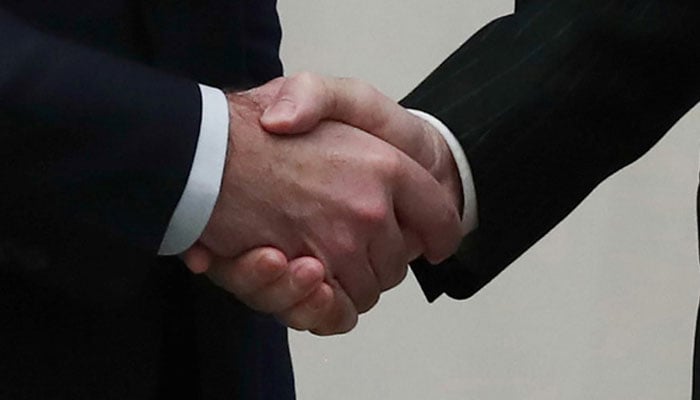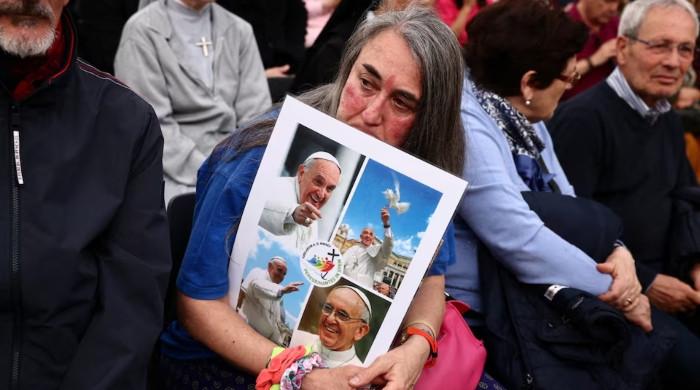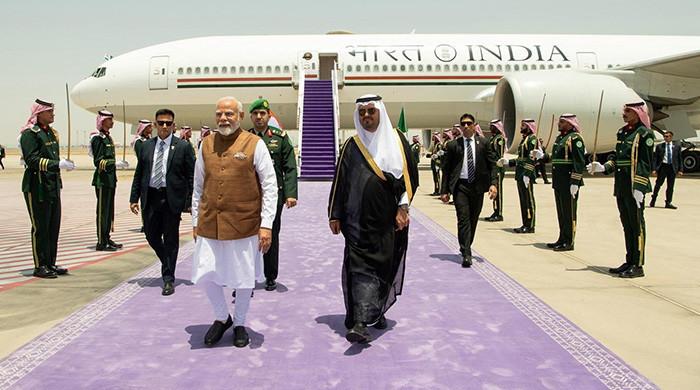Biden shakes hands with Stalin at G20 summit in 'historic' encounter
Stalin shared a picture of this handshake on social media
September 11, 2023

In a historic moment that occurred at the recent G20 summit in India, a Stalin shook hands with a US president for the first time in decades.
However, this was not a reference to the long-dead former Soviet dictator, Joseph Stalin, but rather M.K. Stalin, the chief minister of India's Tamil Nadu state, who shares a name with the Soviet leader.
M.K. Stalin, born in 1953, was named after Joseph Stalin by his father.
The unique coincidence brought smiles as he greeted US President Joe Biden at the all-vegetarian G20 gala dinner in New Delhi, with Indian Prime Minister Narendra Modi also present.
Stalin shared a picture of this handshake on social media, avoiding historical references and simply captioning it as attending the #G20Dinner hosted by the Hon'ble President of India.
The encounter drew attention from users on social media platforms.
Some marvelled at the meeting, highlighting the significance of a US president interacting with someone named Stalin after the events of World War II.
The wartime alliance between the United States and the Soviet Union disintegrated rapidly following the defeat of Germany and Japan, leading to the Cold War era.
During the Cold War, India maintained a stance of non-alignment but had a leaning toward the Soviet Union.
Moscow remained India's largest supplier of arms during this period, forging strong ties between the two nations.
It's worth noting that Russian-inspired names are not uncommon in India, particularly in the southern states like Tamil Nadu and neighbouring Kerala.
These regions have a history of electing Communist governments, and in 2021, a wedding in Kerala featured a groom named Engels, with guests including friends named Marx, Lenin, and Ho Chi Minh.
Similarly, in (MK) Stalin's state, a wedding ceremony saw Socialism united in matrimony with brothers Communism, Leninism, and Marxism present at the celebration.
These instances reflect the enduring influence of socialist and communist ideologies in certain parts of India.











